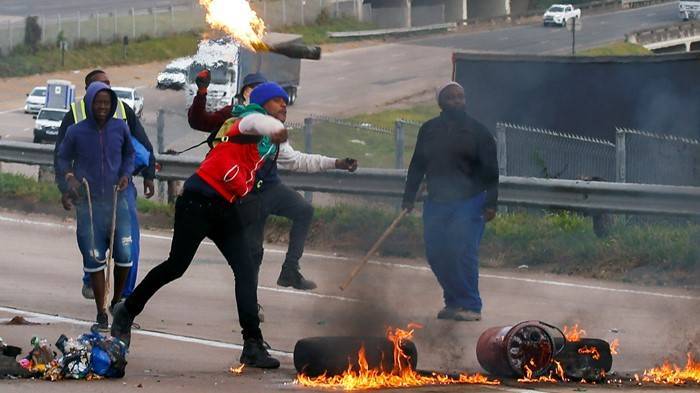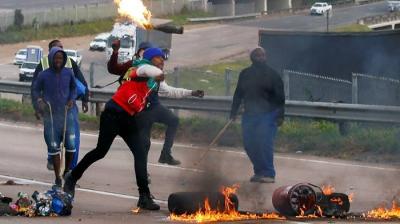The violence has escalated, with stores being looted, a section of a highway closed, and protesters wielding sticks on Sunday in Johannesburg, South Africa's economic hub, following the imprisonment of former president Jacob Zuma. The province of KwaZulu-Natal, Zuma's birthplace, experienced the bulk of the violence, where the former president began serving a 15-month prison sentence for contempt of court on Wednesday evening.
South African President Cyril Ramaphosa stated on Sunday that there is no justification for the violence, and that the unrest "harms our efforts to rebuild the economy" amid the COVID-19 pandemic. Ramaphosa added, "While there are now people who have been harmed or angry individuals, there is no justification for such violent, destructive, and disruptive acts."
The ruling and the enforcement of Zuma's sentence are seen as a test of the government's ability to enforce the law in the post-apartheid era, even against powerful politicians, after 27 years since the African National Congress managed to overthrow minority white rule and start a democratic era. However, Zuma's imprisonment has angered his supporters and revealed divisions within the party.
Police indicated that some criminal elements are exploiting the anger stemming from Zuma's imprisonment for theft and causing damage. The National Intelligence Agency warned that those inciting violence may face criminal charges. In a statement, the agency reported that 62 people have been arrested in KwaZulu-Natal and Gauteng, where Johannesburg is located, since the violence began.
Police in Johannesburg also reported receiving complaints about gunfire directed at passing vehicles on the highway. The court had sentenced Zuma to 15 months in prison for refusing to comply with a Constitutional Court order in February to provide evidence for an investigation into corruption during his nine-year presidency until 2018. Zuma has appealed the ruling to the Constitutional Court on grounds including deteriorating health and the risk of COVID-19 infection, with the appeal set to be heard on Monday.




